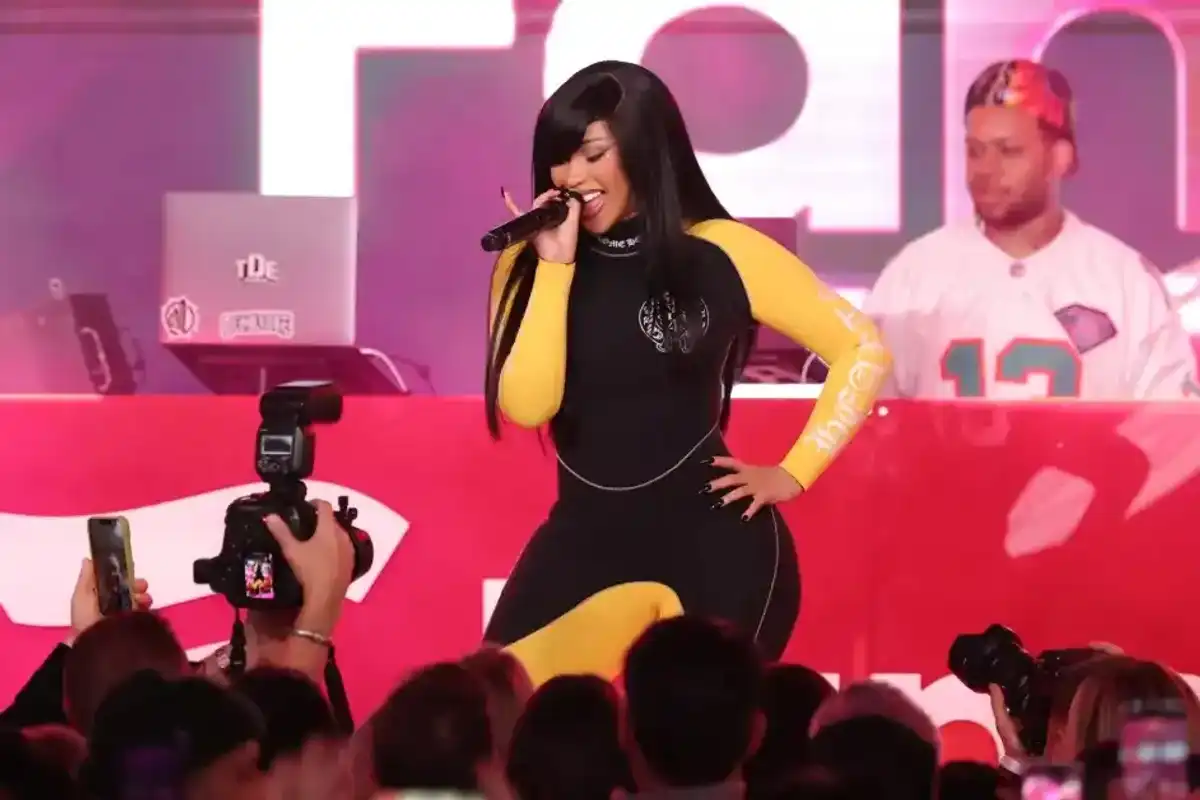More Than 10% of the Most-Streamed Songs in Canada are by Canadian Artists
A new report from Music Canada finds that Canadian artists like Tate McRae, Karan Aujla and Charlotte Cardin rank above American stars like Selena Gomez. The report, billed as the first of its kind, aims to provide guidance as the government implements Bill C-11, the Online Streaming Act.

Canadians are streaming their homegrown musicians. According to a new report, of the 1,000 most-streamed artists in Canada, 113 are Canadian.
Laying a Foundation for Success, published by Music Canada — the association representing major music labels in Canada — takes a look at Canadian streaming data to determine whether Canadian artists are getting heard. Studying the 10,000 most popular artists Canada in 2022, economist Will Page finds that 889 were Canadian. Of the 10,000 most popular songs, 1013 were Canadian.
At the upper echelons of popularity, the trend holds: roughly ten percent of the thousand most-streamed artists and songs were Canadian. Canadian artists like Tate McRae and Charlotte Cardin outranked popular American stars like Selena Gomez on that list. Other Canadians amongst the 1000 most-streamed artists include country singer Josh Ross, Punjabi-Canadian artist Karan Aujla, pianist Alexandra Stréliski and singer Lauren Spencer Smith.
Of the 889 Canadian artists amongst the top ten thousand, roughly 75% perform in English, while 20% perform in French. Page notes that the third most-popular language segment is Punjabi music, which is also the fastest-growing music language in the country, and accounts for 3% of the 889 musicians.
On the global stage, Canadian artists also rank third, behind the U.S. and the U.K., in worldwide streams of the thousand most-popular songs.
“In a world where fans can listen to any artist, from any country in the world, and with nearly every recorded song at their fingertips, listeners are choosing Canadian music," says Music Canada CEO Patrick Rogers.
Andrew Cash, President of Canadian Independent Music Association (CIMA), points to the Canadian funding organizations that make streaming numbers like this possible.
"In many ways, this is a real testament to the work that FACTOR and Musicaction and Starmaker have done to invest in Canadian talent at the beginning, and to work with companies and artists along the way," Cash tells Billboard Canada.
For economist Will Page, who previously worked at Spotify, this data demonstrates the strength of Canada's music industry in the streaming economy.
"The Canadian recorded music industry is by any honest reckoning a case study in streaming success," Page writes.
Recorded music revenues in Canada have doubled since 2014, when Spotify launched, and are now as high as they were before the launch of iTunes in 2004. Page notes that according to consultancy MIDIA, Canadian recorded music revenues could soon hit a billion dollars for the first time.
Though streaming revenues may be growing, many artists are critical of streaming services' royalty models. Spotify's new royalty share structure has de-monetized tracks with fewer than a thousand plays per year, leaving many smaller and emerging artists out of the royalty share pool.
In the report, Page argues that the problem is not with the royalty models but with the increase in the number of musicians and "mouths to feed."
Getting Canadian Artists Out to the World
It's a pivotal time for music streaming in Canada, and Music Canada's report has some suggestions on how this data could be used for regulating streaming services.
The government is preparing to implement Bill C-11, the Online Streaming Act, which became law last year. As the CRTC undertakes consultations around how to best apply the new amendments to the Broadcasting Act — the first round of hearings wrapped up in December — Page's report lays out three possible policy approaches.
The first is to do nothing, and to let the services continue to operate essentially unregulated.
The second approach, which Page refers to as "Mandate, Don't Dictate," would entail moderate government interventions that benefit Canadian artists and rights-holders. Page outlines potential interventions such as requirements that Canadian artists be indexed highly on playlists, or that streaming services pay into the Canadian music industry in the same way as radio broadcasters, which are mandated to contribute to FACTOR and Musicaction, funding bodies that support Canadian artists.
The third approach considered is a more involved form of regulation that imposes clearer quotas (similar to CanCon regulations on radio) on streaming platforms.
Andrew Cash says that CIMA is most interested in the second approach, specifically ensuring that streaming services will contribute financially to the sector, similarly to radio broadcasters.
"What we're trying to do is build sustainable careers over time," he says. "The best way for Canadians to hear Canadian music is to have competitive companies that can duke it out with other companies on the global stage, supporting excellent artists that can also compete with the best of everyone else." The way to achieve this, Cash emphasizes, is through investment in Canadian talent and companies.
The report stops short of recommending a particular strategy — though, from the short amount of space it receives, it seems clear Page doesn't support the most regulated third approach — but he emphasizes that the government should consider the need to support exporting Canadian music globally.
For every one stream within Canada, he writes, Canadian artists are getting roughly ten abroad, and any government music strategy should focus on helping Canadian music thrive on the international stage. Cash says that's an industry-wide priority.
As Music Canada's Rogers puts it, "Our regulatory framework should build on streaming’s ability to connect Canadian and Indigenous artists with fans at home and abroad."
Read the full report here.
- Les Cowboys Fringants, Charlotte Cardin Most Streamed Québécois Artists on Spotify in Canada in 2024 | Billboard Canada ›
- Les Cowboys Fringants et Charlotte Cardin sont les artistes québécois les plus écoutés sur Spotify au Canada en 2024 | Billboard Canada ›
- Canada Was the Number Three Exporter of Music In The World in 2024 | Billboard Canada ›
- Le Canada était le troisième exportateur mondial de musique en 2024 | Billboard Canada ›
- Spotify Reports Francophone Music Is One of the Top Genres On The Platform | Billboard Canada ›
- Spotify rapporte que la musique en français figure parmi les genres les plus populaires sur la plateforme | Billboard Canada ›

















